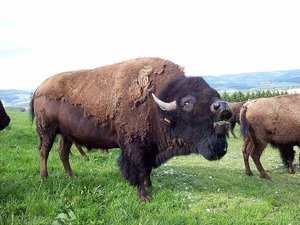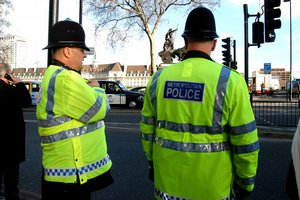- published: 05 Jan 2008
- views: 116302
-
remove the playlistBaoding Balls
- remove the playlistBaoding Balls
Please tell us which country and city you'd like to see the weather in.
- published: 01 Dec 2015
- views: 273
- published: 25 Jan 2010
- views: 41018
- published: 30 Nov 2015
- views: 1254
- published: 06 Jun 2014
- views: 6849
- published: 02 Jan 2012
- views: 37157
- published: 28 Aug 2011
- views: 26276
- published: 18 Jun 2009
- views: 21618
- published: 04 Nov 2011
- views: 786

Not to be confused with Ben Wa balls.
Baoding balls (Chinese: 保定健身球; pinyin: Bǎodìng Jiànshēn Qiú, literally "Baoding physical exercise balls") are also known as Chinese exercise balls, Chinese meditation balls, Chinese medicine balls, and healthy balls. They are a traditional product of Baoding, China, thought to have been created during the Ming dynasty. Two or more Baoding balls are rotated repetitively in the hand to improve manual dexterity and strength, and they are also said to assist in injury recovery.
Baoding balls are believed to have originated in Baoding, a town in the Hebei province of China, during the Ming Dynasty. They were once called "iron balls", since they were originally made of iron. As of 2011, there are still artisans in Baoding who produce the meditation balls.
As Baoding balls became more popular and metalworking skills improved, construction methods varied. Most Baoding balls made and used today are constructed as a pair of hollow spheres, one inside the other, with a chime between which rings as the inner ball strikes it. Many modern examples are decorated with cloisonné and brass wire; however, these are not as suitable for actual use because they can easily chip when dropped or when they come into contact with each other. For injury recovery, hollow balls are generally more suitable due to their lighter weight. For exercise purposes balls made of solid iron, steel or tungsten carbide provide added weight, requiring more effort to rotate.
This article is licensed under the Creative Commons Attribution-ShareAlike 3.0 Unported License, which means that you can copy and modify it as long as the entire work (including additions) remains under this license.

Baoding (Chinese: 保定; pinyin: Bǎodìng) is a city of Hebei province, People's Republic of China, bordering the national capital Beijing, which lies 140 kilometres (87 mi) to the northeast. Its population is 11,194,379 inhabitants at the 2010 census whom 1,665,360 live in the built up area made of 3 urban district plus Qingyuan county now part of the agglomeration.
Baoding is a city with a history dating back to the Western Han Dynasty. It was destroyed by the Mongols in the 13th century, but after the Mongols established the Yuan Dynasty, it was rebuilt. It acquired the name "Baoding" during the Yuan dynasty — the name is roughly interpreted as "protecting the capital", referring to the city's proximity to Beijing. Baoding served for many years as the capital of Zhili, and was a significant centre of culture in the Ming Dynasty and early Qing Dynasty. After Zhili province was abolished in 1928 Baoding became the capital of the newly formed Hebei province. During World War II, the city was the site of a headquarters for Japanese occupation forces. In 1958, the role of provincial capital was assumed by Tianjin, which had lost its status as a provincial level municipality, but when Tianjin was elevated again in 1966, Baoding regained its position. In 1970, however, the rapidly growing city of Shijiazhuang became capital instead.
This article is licensed under the Creative Commons Attribution-ShareAlike 3.0 Unported License, which means that you can copy and modify it as long as the entire work (including additions) remains under this license.
Radio Stations - Baoding
SEARCH FOR RADIOS
- Loading...

-
 9:01
9:01Baoding balls, Chinese iron exercize balls, howto roll #2
Baoding balls, Chinese iron exercize balls, howto roll #2Baoding balls, Chinese iron exercize balls, howto roll #2
Me fumbling around with a couple of meridian balls, also known as Chinese therapy balls. Originally there are from Baoding (China) and were first mass produced (in solid iron) during the Ming Dynasty (1368-1644) -
 1:09
1:094 Baoding Balls
4 Baoding Balls4 Baoding Balls
Inter-changing 4 Baoding Balls between both hands -
 9:53
9:53Baoding / Beijing, China | 2015
Baoding / Beijing, China | 2015Baoding / Beijing, China | 2015
-
 3:10
3:10Welcome to Baoding Chinas most polluted city where struggle with the living in health 華夏中國半壁河山盡霧霾
Welcome to Baoding Chinas most polluted city where struggle with the living in health 華夏中國半壁河山盡霧霾Welcome to Baoding Chinas most polluted city where struggle with the living in health 華夏中國半壁河山盡霧霾
In Baoding, China, the country's most polluted city, the smog is thick enough to see. It can burn your eyes and it can leave an acrid taste in your mouth. This is the reality of daily life under the cloak of a toxic shroud. It's the air Zhao Shuang and his family breathe in every day. He grew up in Baoding, and remembers a childhood of sunny skies. Today, that is a rarity. His young son is a year old and has seen far more gray skies than blue. China's demand for energy choking the capital China's demand for energy choking the capital 02:45 "When the pollution gets really serious, we can't even see the buildings next to us," said Zhao, from inside the small apartment he shares with his son, wife, and mother. On Monday, the air quality reading (AQI) at one of the city's own monitoring stations stood at nearly 1,000, the worst in the country, according to China's own Ministry of Environmental Protection. According to United Nations guidelines, a reading of more than 100 is unhealthy for at-risk groups. On the day Zhao spoke to CNN, the air quality wasn't that bad -- just four times higher than the United Nations' guidelines. But in a place like Baoding, that counts as a good day. Welcome to Baoding Chinas most polluted city where struggle with the living in health 華夏中國半壁河山盡霧霾,for more information about china world news visit site at http://youtube.com/user/videofilmfiles as well as business website at http://penglaichina.com -
 6:45
6:45Choosing your Baoding / Chinese therapy balls
Choosing your Baoding / Chinese therapy ballsChoosing your Baoding / Chinese therapy balls
Just a few tips for questions I've gotten about selecting the right size ball for beginners. These balls are said to increase the flow of qi energy to the body and organs. They increase blood flow and help with finger strength and dexterity. When using them properly, the muscles in the fingers, wrist and forearm all work together in harmony. The larger contact balls and exerballs shown are all from Dube.com with the exception of the glass balls, which were purchased at a flea market. The glass balls and exerballs all weigh about 2lbs each. -
 2:30
2:30Dangerous smog levels choke China's Baoding
Dangerous smog levels choke China's BaodingDangerous smog levels choke China's Baoding
China issues its highest level smog alert as world leaders arrive in Paris for a Climate Summit. Al Jazeera's Adrian Brown reports on the devastating impact of industrialisation in China's most polluted city of Baoding. Subscribe to our channel http://bit.ly/AJSubscribe Follow us on Twitter https://twitter.com/AJEnglish Find us on Facebook https://www.facebook.com/aljazeera Check our website http://www.aljazeera.com/ -
 4:18
4:18Happy hands therapy Baoding balls
Happy hands therapy Baoding ballsHappy hands therapy Baoding balls
Baoding balls are a great way to give the hand therapy to help recover from injuries. Practice 3 to 5 minutes doing sets on each side. Take breaks if too sore or strains too much. -
 10:36
10:36Whispering #14- asmr/relaxation- Baoding balls
Whispering #14- asmr/relaxation- Baoding ballsWhispering #14- asmr/relaxation- Baoding balls
Just playing with some Chinese relaxation/meditation balls. They're known as Baoding balls, and they make the loveliest chime noises when shaken. Enjoy! Yes, I know, half of you (more?) are snickering because I'm "playing with balls" ok, ok, I get it. -
 4:58
4:58Chinese Therapy Balls | Baoding Balls | Sifu Dan Ferrera
Chinese Therapy Balls | Baoding Balls | Sifu Dan FerreraChinese Therapy Balls | Baoding Balls | Sifu Dan Ferrera
Sifu Dan Ferrera discusses how to use Chinese Therapy Balls, or baoding balls, to develop chi. He also shows his unique invention of using a copper sphere and magnet sphere to gain added energy. -
 1:52
1:52Smog in Baoding
Smog in BaodingSmog in Baoding
Cina -
 2:57
2:57Baoding balls- multiball and passing
Baoding balls- multiball and passingBaoding balls- multiball and passing
Demonstrations of a few different patters with multiple Chinese therapy balls as well as different passing techniques using 3 and 4 balls. I mess up a little passing 4 balls back and forth. I've only been doing that pattern for a couple weeks and I was a little off on my timing today. -
 6:52
6:52Baoding 2011
Baoding 2011Baoding 2011
Scenes from Baoding, Hebei, a city not far from Beijing. It's a vibrant, fast changing city which still holds its rural roots dear while being a university town.
-

Baoding balls, Chinese iron exercize balls, howto roll #2
Me fumbling around with a couple of meridian balls, also known as Chinese therapy balls. Originally there are from Baoding (China) and were first mass produced (in solid iron) during the Ming Dynasty (1368-1644) -

4 Baoding Balls
Inter-changing 4 Baoding Balls between both hands -

Baoding / Beijing, China | 2015
-

Welcome to Baoding Chinas most polluted city where struggle with the living in health 華夏中國半壁河山盡霧霾
In Baoding, China, the country's most polluted city, the smog is thick enough to see. It can burn your eyes and it can leave an acrid taste in your mouth. This is the reality of daily life under the cloak of a toxic shroud. It's the air Zhao Shuang and his family breathe in every day. He grew up in Baoding, and remembers a childhood of sunny skies. Today, that is a rarity. His young son is a year old and has seen far more gray skies than blue. China's demand for energy choking the capital China's demand for energy choking the capital 02:45 "When the pollution gets really serious, we can't even see the buildings next to us," said Zhao, from inside the small apartment he shares with his son, wife, and mother. On Monday, the air quality reading (AQI) at one of the city's own monitoring... -

Choosing your Baoding / Chinese therapy balls
Just a few tips for questions I've gotten about selecting the right size ball for beginners. These balls are said to increase the flow of qi energy to the body and organs. They increase blood flow and help with finger strength and dexterity. When using them properly, the muscles in the fingers, wrist and forearm all work together in harmony. The larger contact balls and exerballs shown are all from Dube.com with the exception of the glass balls, which were purchased at a flea market. The glass balls and exerballs all weigh about 2lbs each. -

Dangerous smog levels choke China's Baoding
China issues its highest level smog alert as world leaders arrive in Paris for a Climate Summit. Al Jazeera's Adrian Brown reports on the devastating impact of industrialisation in China's most polluted city of Baoding. Subscribe to our channel http://bit.ly/AJSubscribe Follow us on Twitter https://twitter.com/AJEnglish Find us on Facebook https://www.facebook.com/aljazeera Check our website http://www.aljazeera.com/ -

Happy hands therapy Baoding balls
Baoding balls are a great way to give the hand therapy to help recover from injuries. Practice 3 to 5 minutes doing sets on each side. Take breaks if too sore or strains too much. -

Whispering #14- asmr/relaxation- Baoding balls
Just playing with some Chinese relaxation/meditation balls. They're known as Baoding balls, and they make the loveliest chime noises when shaken. Enjoy! Yes, I know, half of you (more?) are snickering because I'm "playing with balls" ok, ok, I get it. -

Chinese Therapy Balls | Baoding Balls | Sifu Dan Ferrera
Sifu Dan Ferrera discusses how to use Chinese Therapy Balls, or baoding balls, to develop chi. He also shows his unique invention of using a copper sphere and magnet sphere to gain added energy. -

Smog in Baoding
Cina -

Baoding balls- multiball and passing
Demonstrations of a few different patters with multiple Chinese therapy balls as well as different passing techniques using 3 and 4 balls. I mess up a little passing 4 balls back and forth. I've only been doing that pattern for a couple weeks and I was a little off on my timing today. -

Baoding 2011
Scenes from Baoding, Hebei, a city not far from Beijing. It's a vibrant, fast changing city which still holds its rural roots dear while being a university town.
Baoding balls, Chinese iron exercize balls, howto roll #2
- Order: Reorder
- Duration: 9:01
- Updated: 05 Jan 2008
- views: 116302
- published: 05 Jan 2008
- views: 116302
4 Baoding Balls
- Order: Reorder
- Duration: 1:09
- Updated: 19 Jun 2009
- views: 258121
Baoding / Beijing, China | 2015
- Order: Reorder
- Duration: 9:53
- Updated: 20 Jun 2015
- views: 655
- published: 20 Jun 2015
- views: 655
Welcome to Baoding Chinas most polluted city where struggle with the living in health 華夏中國半壁河山盡霧霾
- Order: Reorder
- Duration: 3:10
- Updated: 01 Dec 2015
- views: 273
- published: 01 Dec 2015
- views: 273
Choosing your Baoding / Chinese therapy balls
- Order: Reorder
- Duration: 6:45
- Updated: 25 Jan 2010
- views: 41018
- published: 25 Jan 2010
- views: 41018
Dangerous smog levels choke China's Baoding
- Order: Reorder
- Duration: 2:30
- Updated: 30 Nov 2015
- views: 1254
- published: 30 Nov 2015
- views: 1254
Happy hands therapy Baoding balls
- Order: Reorder
- Duration: 4:18
- Updated: 06 Jun 2014
- views: 6849
- published: 06 Jun 2014
- views: 6849
Whispering #14- asmr/relaxation- Baoding balls
- Order: Reorder
- Duration: 10:36
- Updated: 02 Jan 2012
- views: 37157
- published: 02 Jan 2012
- views: 37157
Chinese Therapy Balls | Baoding Balls | Sifu Dan Ferrera
- Order: Reorder
- Duration: 4:58
- Updated: 28 Aug 2011
- views: 26276
- published: 28 Aug 2011
- views: 26276
Smog in Baoding
- Order: Reorder
- Duration: 1:52
- Updated: 29 Jan 2014
- views: 184
- published: 29 Jan 2014
- views: 184
Baoding balls- multiball and passing
- Order: Reorder
- Duration: 2:57
- Updated: 18 Jun 2009
- views: 21618
- published: 18 Jun 2009
- views: 21618
Baoding 2011
- Order: Reorder
- Duration: 6:52
- Updated: 04 Nov 2011
- views: 786
- published: 04 Nov 2011
- views: 786
- Playlist
- Chat
- Playlist
- Chat

Baoding balls, Chinese iron exercize balls, howto roll #2
- Report rights infringement
- published: 05 Jan 2008
- views: 116302

4 Baoding Balls
- Report rights infringement
- published: 19 Jun 2009
- views: 258121

Baoding / Beijing, China | 2015
- Report rights infringement
- published: 20 Jun 2015
- views: 655

Welcome to Baoding Chinas most polluted city where struggle with the living in health 華夏中國半壁河山盡霧霾
- Report rights infringement
- published: 01 Dec 2015
- views: 273

Choosing your Baoding / Chinese therapy balls
- Report rights infringement
- published: 25 Jan 2010
- views: 41018

Dangerous smog levels choke China's Baoding
- Report rights infringement
- published: 30 Nov 2015
- views: 1254

Happy hands therapy Baoding balls
- Report rights infringement
- published: 06 Jun 2014
- views: 6849

Whispering #14- asmr/relaxation- Baoding balls
- Report rights infringement
- published: 02 Jan 2012
- views: 37157

Chinese Therapy Balls | Baoding Balls | Sifu Dan Ferrera
- Report rights infringement
- published: 28 Aug 2011
- views: 26276

Smog in Baoding
- Report rights infringement
- published: 29 Jan 2014
- views: 184

Baoding balls- multiball and passing
- Report rights infringement
- published: 18 Jun 2009
- views: 21618

Baoding 2011
- Report rights infringement
- published: 04 Nov 2011
- views: 786
The Two Biggest Threats Facing the Survival of Humanity
Edit Alternet 16 May 2016Bison Calf Euthanized After Yellowstone Tourists Took It Inside Their Vehicle
Edit WorldNews.com 16 May 2016[VIDEO]: Ancient Roman Treasure Trove Discovered Off Coast Of Caesarea
Edit WorldNews.com 16 May 2016London Police Report Child Abuse Cases Involving Witchcraft On The Rise
Edit WorldNews.com 16 May 2016Testimony: El Faro captain planned to 'shoot under' storm
Edit Boston Herald 16 May 2016Quiz: How much do you know about stress?
Edit The Times of India 06 Nov 2015Top ten executive stress toys
Edit Sydney Morning Herald 11 Jan 2015How much do you know about stress?
Edit The Times of India 10 Nov 2014- 1
- 2
- 3
- 4
- 5
- Next page »







